‘No one is sure when this will end’: How coronavirus has changed my life in Beijing
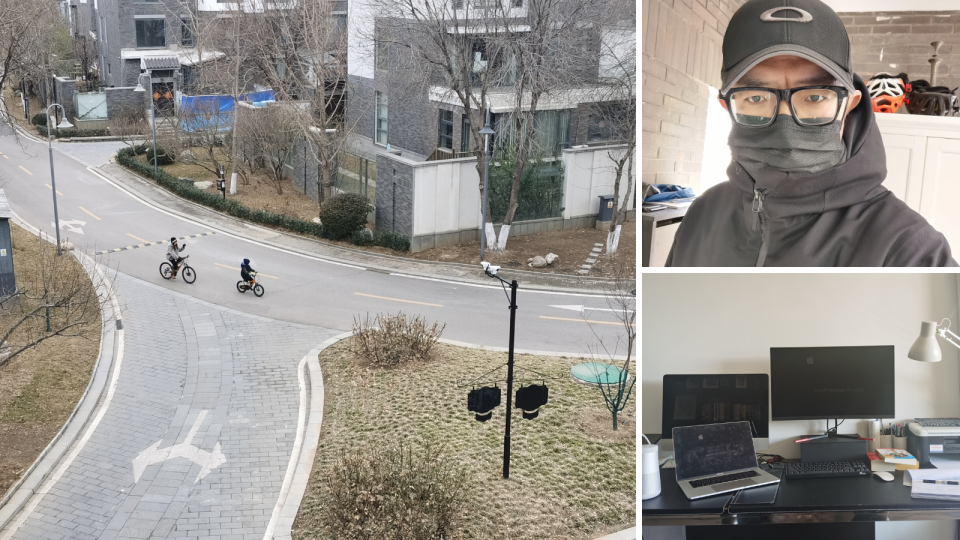
Josh Li is the managing director of the Beijing branch of WE Marketing Group, a major marketing agency in China that has six offices and hires more than 300 professionals.
It’s a job that typically sees him dedicate 10-hour days to generating creative ideas that will be turned into campaigns and events by global brands such as Mercedes Benz, Jaguar, Volvo, Estee Lauder, ICBC and Cisco.
Travel makes up a major part of the job, and he regularly flies to other cities to meet with clients for meetings and company events.
All the countries on Australia’s coronavirus travel ban list
Domino effect: How coronavirus will hit Australia
Could coronavirus tip Australia into a recession? Here’s what 5 experts said
But since about the 25th of January, Li and his wife and two young sons are virtually housebound after Beijing implemented strict controls to keep people at home to prevent further spread of coronavirus, or Covid-19, of which there have been more than 98,000 cases and has so far killed over 3,350 people around the globe. The numbers rise hourly.
Because of the viral epidemic, the typical one-week Chinese Lunar New Year holiday, which normally begins 23 January, was stretched to two. During this time, China – the ‘world’s factory’ – shut down. Manufacturing halted, restaurants and retailers closed their doors, and business activity stalled.
“Starting from the 3rd of February we decided that we should resume our work without going into office,” Li said.
“Originally I was thinking of having staff go back to the office on Monday [2nd February], but we decided not to because we wanted to be very, very cautious.”
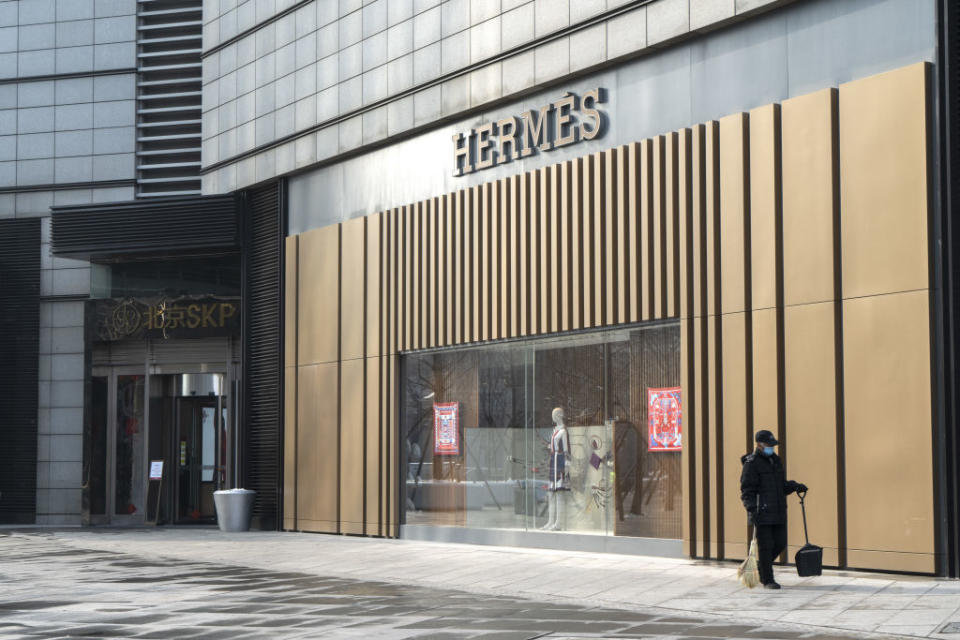
Life has changed since 25 January
In China’s capital city, home to 21.5 million people, Beijing residents are still permitted to leave and enter the borders of the city, under intense questioning by Chinese authorities, but must be quarantined for 14 days.
However, those with a home address outside Beijing are turned away. “Sorry, we can’t let you in,” police officers told two visitors when it was discovered they weren’t residents. “What if you are sick?”
When Li enters and leaves his building complex, he goes through the same routine that millions of other Beijingers also go through: his temperature is taken by masked Chinese authorities, and he must prove he is a resident of the building.
‘Outsiders’ are either denied entry or are required to note down personal details, such as their name, phone number and address before being let in.
Housebound
It’s been more than a month since Beijing implemented its strict controls, and by now people have learnt to live by the new rules.
Li or his wife only leave the house once or twice a week to buy groceries. When entering the supermarket, their temperatures are taken again.
Like every other Chinese family, Li locked themselves at homes and attempted to buy in-demand products to reduce the chances of contracting the virus.
“We went out and tried to buy masks. There are no masks out there. We tried to get [antibacterial cleaning products] and couldn't find any.
“At this point we got worried. Do we need to stock food or water at home? But we didn't need to do that. Most people do not panic, and there are still supplies in supermarkets and shops.”
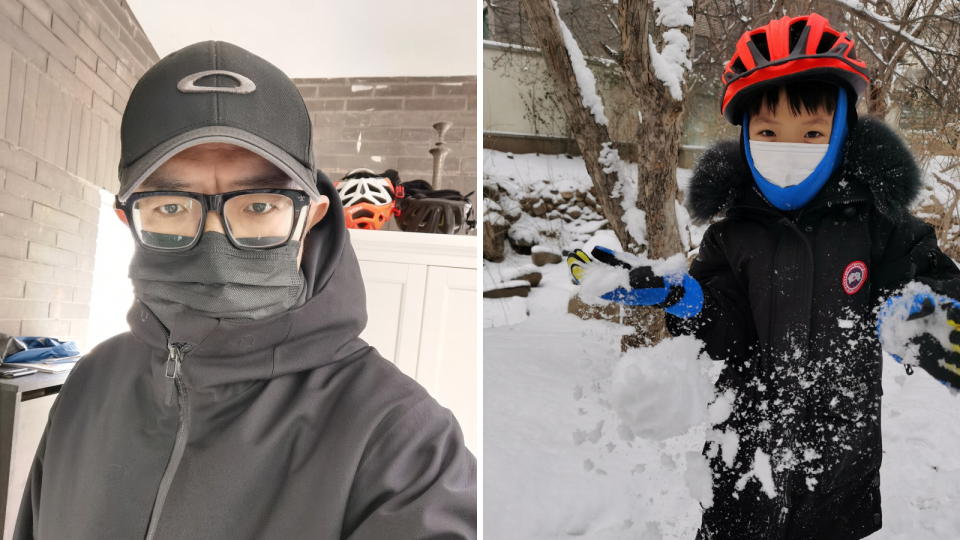
The new normal: Working from home
In many pockets of China, doing overtime is an entrenched part of the working culture. “There is no ‘border’ between ‘on’ and ‘off’ time. Everyone works overtime. In our business, this is very normal,” he said.
Before the coronavirus outbreak, conference calls online, work in between travel and discussions about work on the weekend are regular. “This is our life. We are highly mobile. We do a lot of work at home already,” Li said. “That’s why it's easier for us to switch to this model to work out of home.”
But he admits communication with his colleagues, and with clients, has taken a hit.
“Projects are run 80 per cent in the normal way, I would say.”
“Working efficiency is not as high as a normal day. The problem is we do not see clients or staff face-to-face,” Li said. “Communication is not that efficient, not that thorough.”
Groups and sub-groups on WeChat, China’s primary messaging app that also performs functions such as payments, dating, and making bookings, help Li communicate with clients and colleagues. WeChat also added a map feature that allows citizens to see where cases of coronavirus have appeared.
News is being disseminated, personal messages are exchanged, work is discussed and business calls take place all in the one platform.
Li starts his work day at 10am in the morning, but will work until 7 or 8pm in the evening. “Now I’m at home, but I still work 8-10 hours a day, and I’m connecting online with everyone else.”
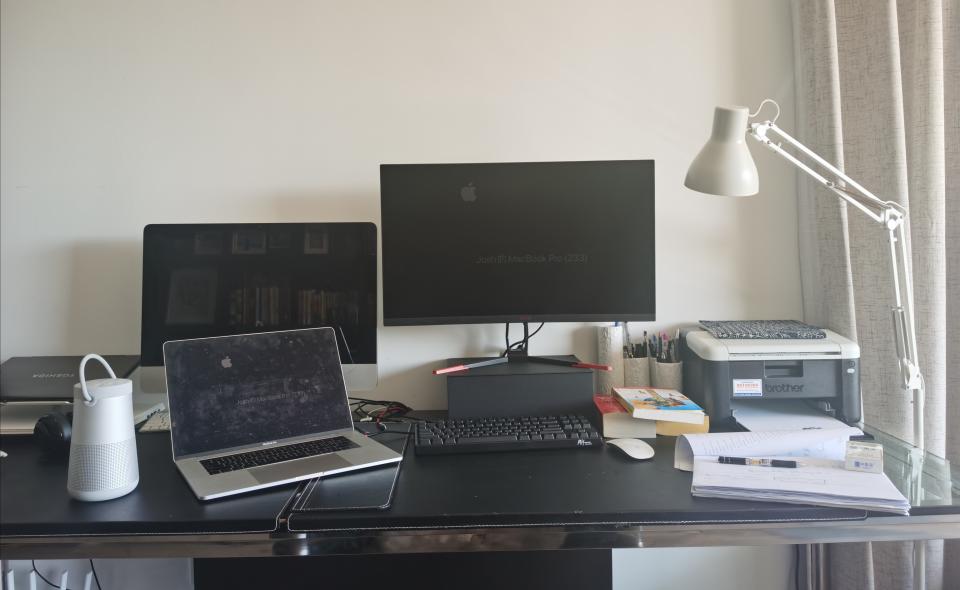
Both Li and his clients are burning the midnight oil to tackle all these new challenges and inconveniences.
“Everyone is trying. Most of our clients are working very hard as well – very long hours. We do not travel, we do not see each other.”
Changing the business model
Coronavirus is the known unknown. Official Chinese advice discourages contact with others. Major gatherings have been cancelled; attractions such as the Forbidden City, Tiananmen Square, and national museums and libraries are closed, as well as parts of the Great Wall of China. People are rarely venturing outdoors.
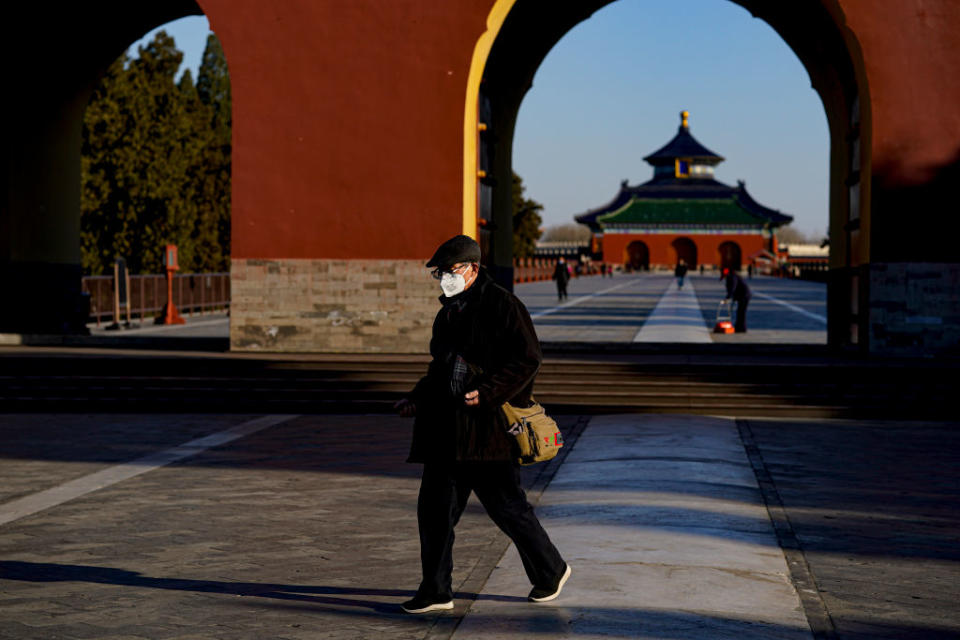
For Li and his colleagues who work at the marketing agency, whose job it is to come up with creative ideas, it means starting from scratch.
“Because of the epidemic, a lot of the projects have to be cancelled; the whole marketing plan is, nowadays, totally chaotic,” he told Yahoo Finance.
“No one is sure when this will end.”
The team has had to create new marketing strategies and readjust seasonal and quarterly plans based on various optimistic and pessimistic scenarios. Marketing efforts will have to be done online, without the boost of offline events.
Li’s clients are automotive brands, and bruised sales figures are a reality that can’t be ignored. One recorded a 50 per cent decrease in the first quarter of 2020, while another client saw near-zero sales.
Li believes consumption will bounce back around June or July, but in the meantime, there is “turbulence” that needs to be navigated.
“If our clients are in trouble, we will be in trouble.”
He’s also worried about how well the economy will be able to bounce back later this year.
“It’s going to be very tough – the economy is going to be bad. Many of my clients may cut their budget and our service fees. And then our business will [carry] this impact. I think this is quite obvious.”
But despite the obvious hit to the bottom line, Li describes the business community as “calm” and focused on problem-solving, even though “many companies are in deep trouble” and worries abound.
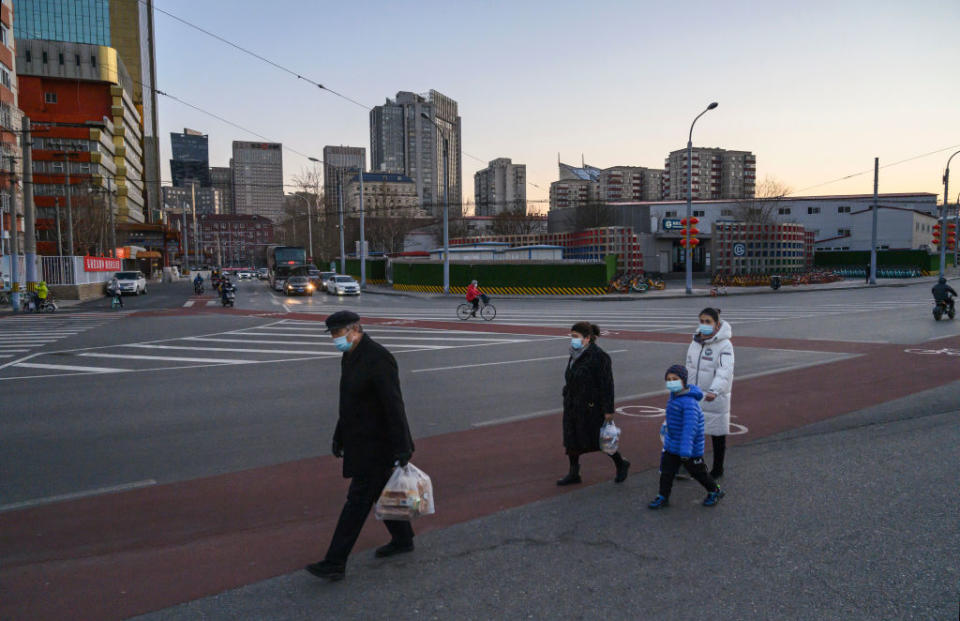
New way of life
After the first week living under such tight controls, and with a steady flow of news and information coming from the local government, the Lis adjusted to the new way of life.
“We don’t go out, we don’t get in contact with strangers; we don’t even get food delivery.”
Li’s sons are starting to feel a little stir-crazy. “For the children, they’re really bored.”
“They stay home, learn with online platforms and have a lot of free time. They’ve stayed at home for a month already. They’re quite bored.”
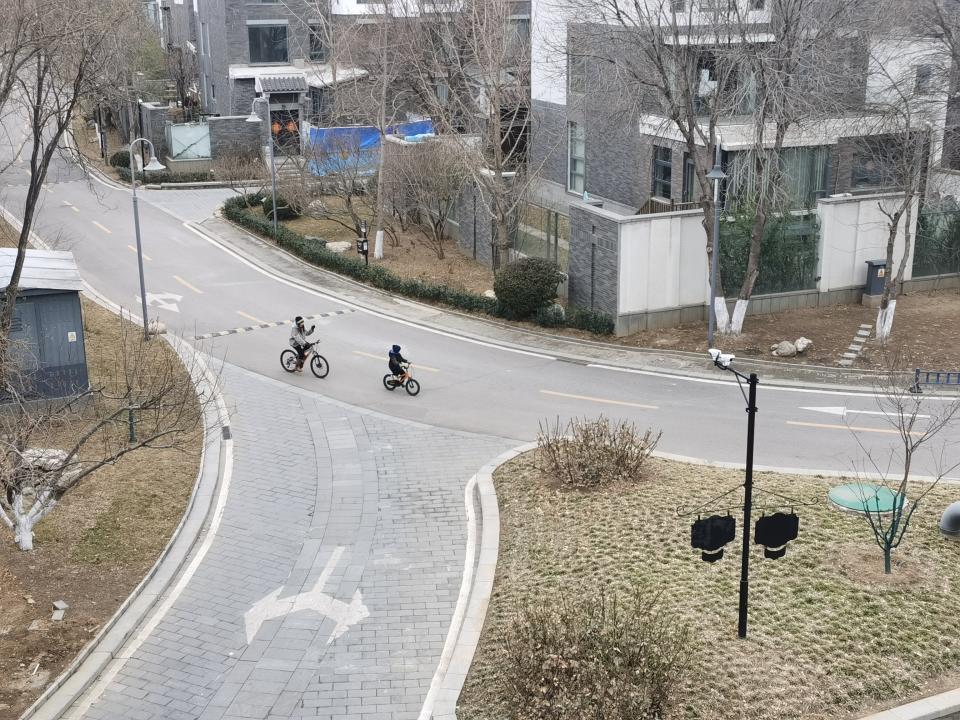
Chinese New Year, typically a big celebration, was a quiet affair spent at home. In fact, Li and his wife were forced to confront something for the first time: learning how to cook.
“The first two weeks were quite challenging because we had to cook at home. I do not know how to cook, my wife doesn't know how to cook, and then we had to cook every meal, every day.”
Usually, Li either has dinner out with colleagues or clients, they order in, or meals would be cooked by an ‘ayi’ — an aunty, or a hired housemaid. But the ‘aunty’ of the Li family has been effectively forced to remain in her hometown, where she returned for Chinese New Year.
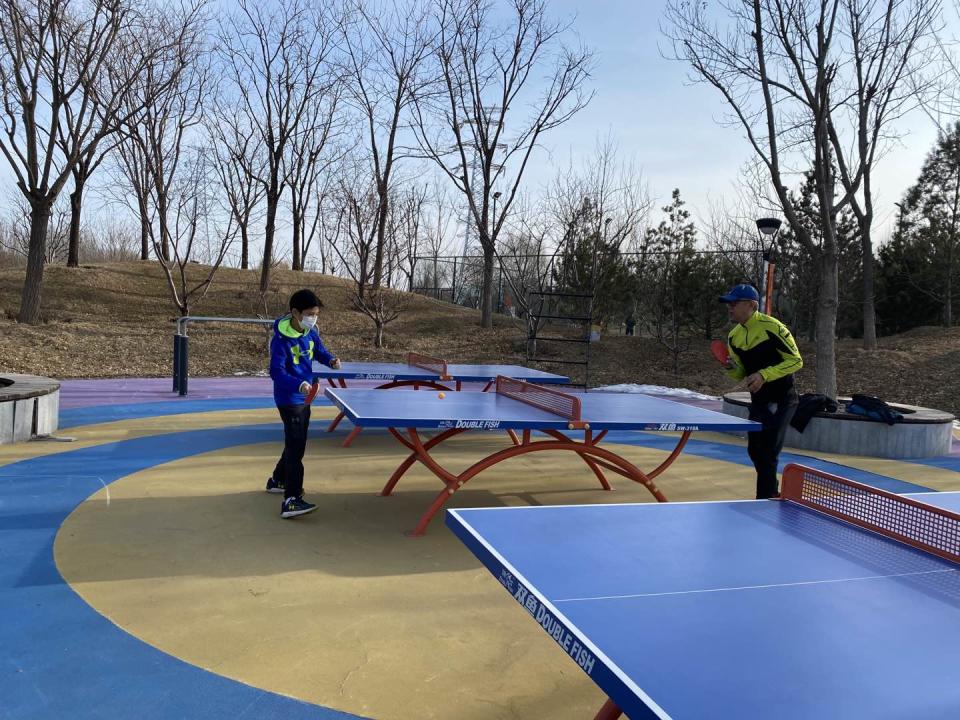
When no news is bad news
Li vividly remembers the SARS outbreak from 2002, which originated in China’s Guangdong province.
When SARS broke out in early February that year, the Chinese government suppressed reporting of the virus, delayed reporting to the World Health Organisation and didn’t provide information to Chinese citizens outside Guangdong province. China copped international criticism for its actions, and while it apparently made changes to government policy in April 2002, the government again sought to censor initial attempts to alert the public about the Covid-19 disease.
Eight Chinese whistleblowers sounded the alarm on a potentially deadly virus resembling SARS and were arrested on 3 February, including Wuhan Central Hospital doctor Li Wenliang, who later died from the virus himself. Later, Chinese authorities would admit he should not have been censured.
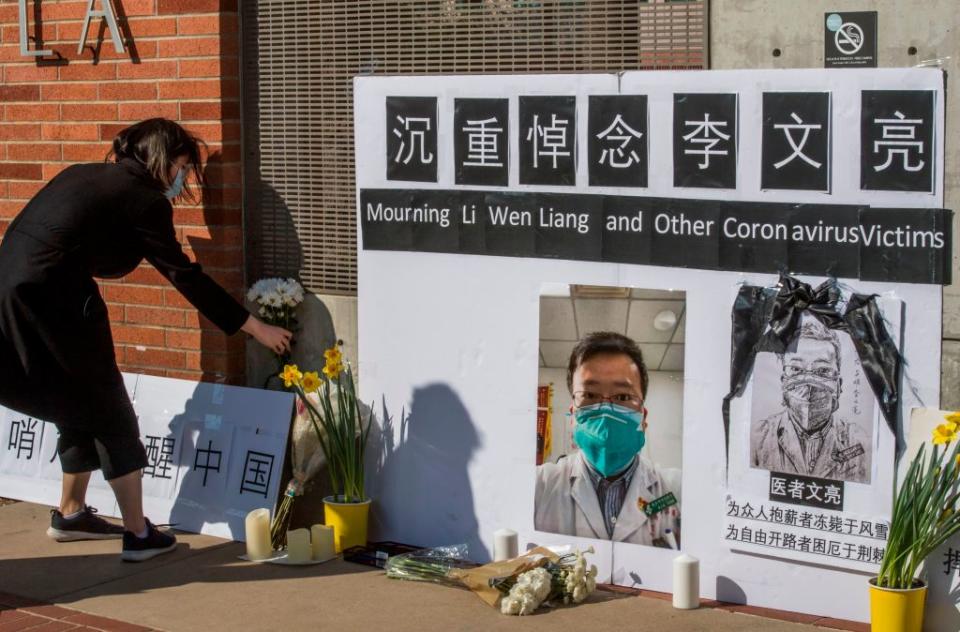
But since then, and though Chinese citizens are still upset at the attempt to downplay the virus, Li said the government has leapt into action.
“Even though there are things that happened earlier in Wuhan that we feel angry about, I have to say the Chinese government has been very positive and taken very quick, swift action to control the epidemic, and it works,” he said.
But just days ago, The Verge reported that WeChat and live-streaming platform YY were censoring words and content around coronavirus. Research group Citizen Lab scripted some conversations and discovered hundreds of censored keywords.
Current state of play
At the time of writing, the Covid-19 coronavirus has spread to 89 countries around the world. Australia has so far seen 60 cases and recorded two deaths.
WHO has revised its mortality rate to 3.4 per cent, up from initial estimates of 2 per cent.
Two days ago, Chinese President Xi Jinping relaxed controls in China everywhere bar two cities: Wuhan, where the viral outbreak originated, and Beijing, the nation’s capital.
“The security and stability of the capital city is directly related to the overall work of the party and the country,” Xi said in a speech last week.
Meanwhile, Australia has placed travel bans on China, Iran and South Korea, while Japan, Mongolia and Italy have been deemed high-risk.
Employees around the globe, and from companies such as Twitter and Indeed, have been forced into the world’s largest work-from-home experiment.
But it could be possible that workers who can’t work from home could be stood down, one employment lawyer has said.
Make your money work with Yahoo Finance’s daily newsletter. Sign up here and stay on top of the latest money, news and tech news.
Follow Yahoo Finance Australia on Facebook, Twitter, Instagram and LinkedIn.

 Yahoo Finance
Yahoo Finance 
